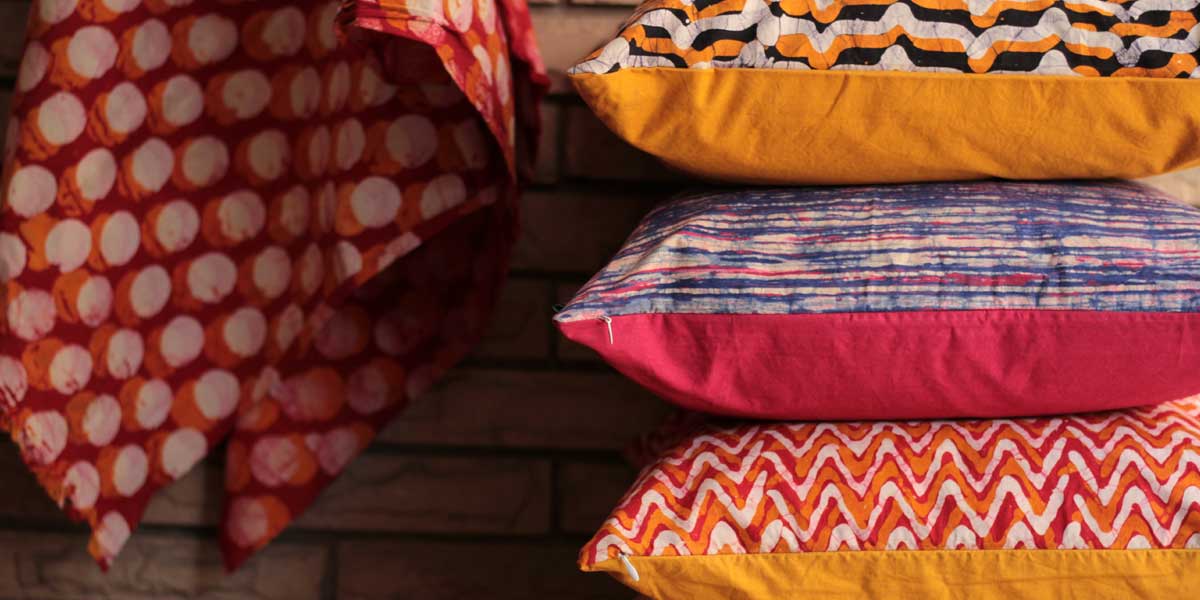Mass produced and machine made décor items marketed under brand names and widely available in the market resulted in a sharp decline in use of handcrafted, locally made and sourced decoration pieces. Ethnic crafts are facing endangerment, but today’s interior designers are making a conscious effort to source locally and give way and exposure to the rare crafts of artisans by sourcing décor locally.
Here's taking a deep dive into the importance of crafts, ethnic décor and why local sourcing is picking up in today’s time.

Indian handcrafts: heritage and employment generator
The handicrafts sector plays an important role in keeping certain rare crafts ethnic to Indian origin alive. It provides livelihood to the generations and tribes and artisans involved in the said craft.
Crafts play an important role in representing the culture and traditions of any area or country. India, being a land of vast geography and culture has plethora of crafts depicting various cultures made in small pockets across.
These crafts in today’s time exist in rural and semi-urban areas and have faded away due to commercialisation and mass production of item. Technology and machinery have been pulling people away from the essence of handcrafted products. It being an unorganised sector has also deeply impacted its presence.
However, with awareness and help from professional interior designers the crafts sector is reviving. Owing to the ‘local ko vocal karo’ thought the tide is shifting towards locally sourced home décor that’s authentic to Indian culture and made by artisans that in turn is increasing the demand of the craft and providing livelihood to those working on it as well.
Shalini Chandrashekar, Co-founder and Principal Architect, Taliesyn says “Diminishing artistry is of prime concern to Taliesyn. We believe that local artists and artisans in South India bring in the reference of culture into our designs here. Local craftsmanship gives relevance and belongingness to the process and output of spatial design.
We, at Taliesyn continue to be inclusive for the revival of diminishing artistry. Our design practice is ameliorated by our active efforts directed towards researching local crafts and indigenous techniques of design; a process that entails working closely with artisans and craftsmen, bringing their artisanal creations to the limelight while shaping it to complement the demeanour of the space. At Taliesyn, we celebrate traditional Indian craftsmanship!”.

Returning to roots
Modern interior design is slowly becoming a clutter of cookie cutter designs. Leading firms and many designers and architects are slowly shifting their ways towards a better and sustainable approach of sourcing local. This not only is important for the economy and heritage of the country but also for the sustainability of the planet.
Rakhee Bedi Kumar, Founding Principal, RSDA says “As designers, it is our belief to source materials locally, in order to be inherently sustainable. We have been sourcing glass from Firozabad and brass from Moradabad for various projects. Sourcing local materials and artisans for projects enhances the interiors and promotes local craftsmanship and aids in reviving the largely forgotten crafts of India”.
Use of locally sourced products also enables accessibility of these professionals and helps further their line of work as well.
Adding charm to homes
Adding vibrancy, texture and colours to a home can transform its look. With the vast diversity in Indian décor pieces, their motifs, colour and style a home is sure to have the most unique look and charm that one is looking for.
Décor for home comes from wall hangings, painting, rugs, carpets, cushions, tapestry, sculptures and accessories. Small elements are a paisley or elephants are unique to Indian heritage. These pieces not only add charm to a home but also make them exotic in their own way.
Ethnic décor is vast and is full of Indian heritage. It is the source of livelihood and an ecofriendly way of living. Adding this to your home is a win for you and the planet.
Also read:
https://www.constructionworld.in/latest-construction-news/real-estate-news/interiors/elevate-your-home-with-soft-furnishings/29970
https://www.constructionworld.in/latest-construction-news/real-estate-news/interiors/design-elements-to-elevate-your-home-interiors/29889





















